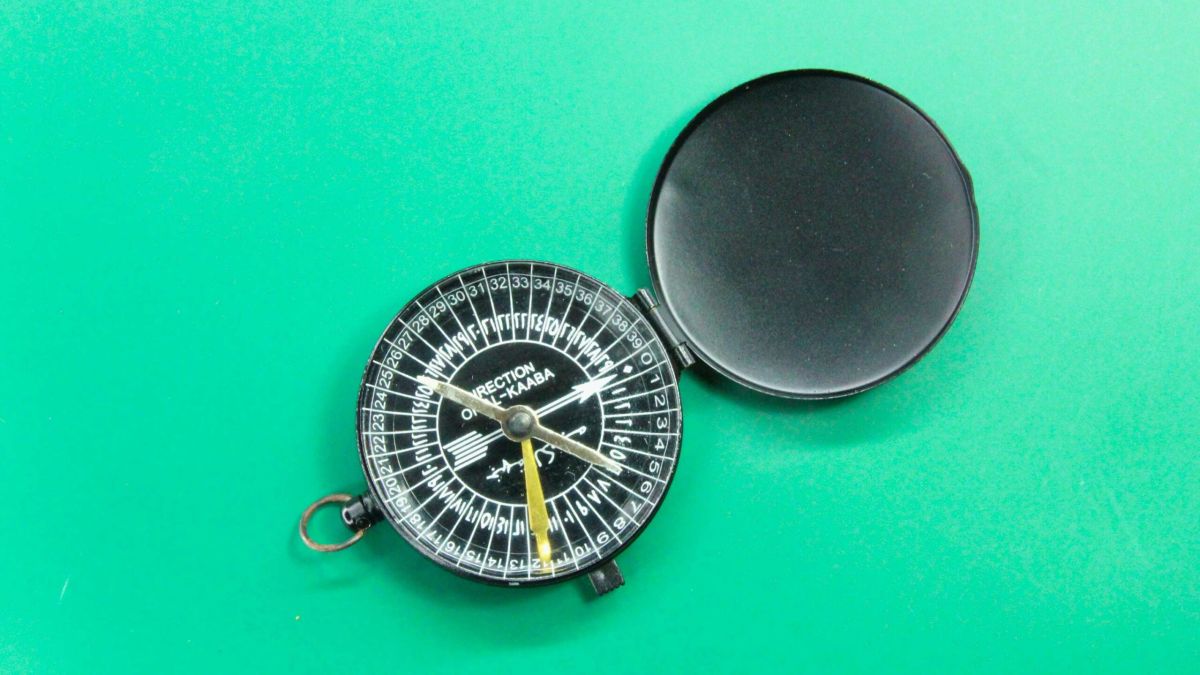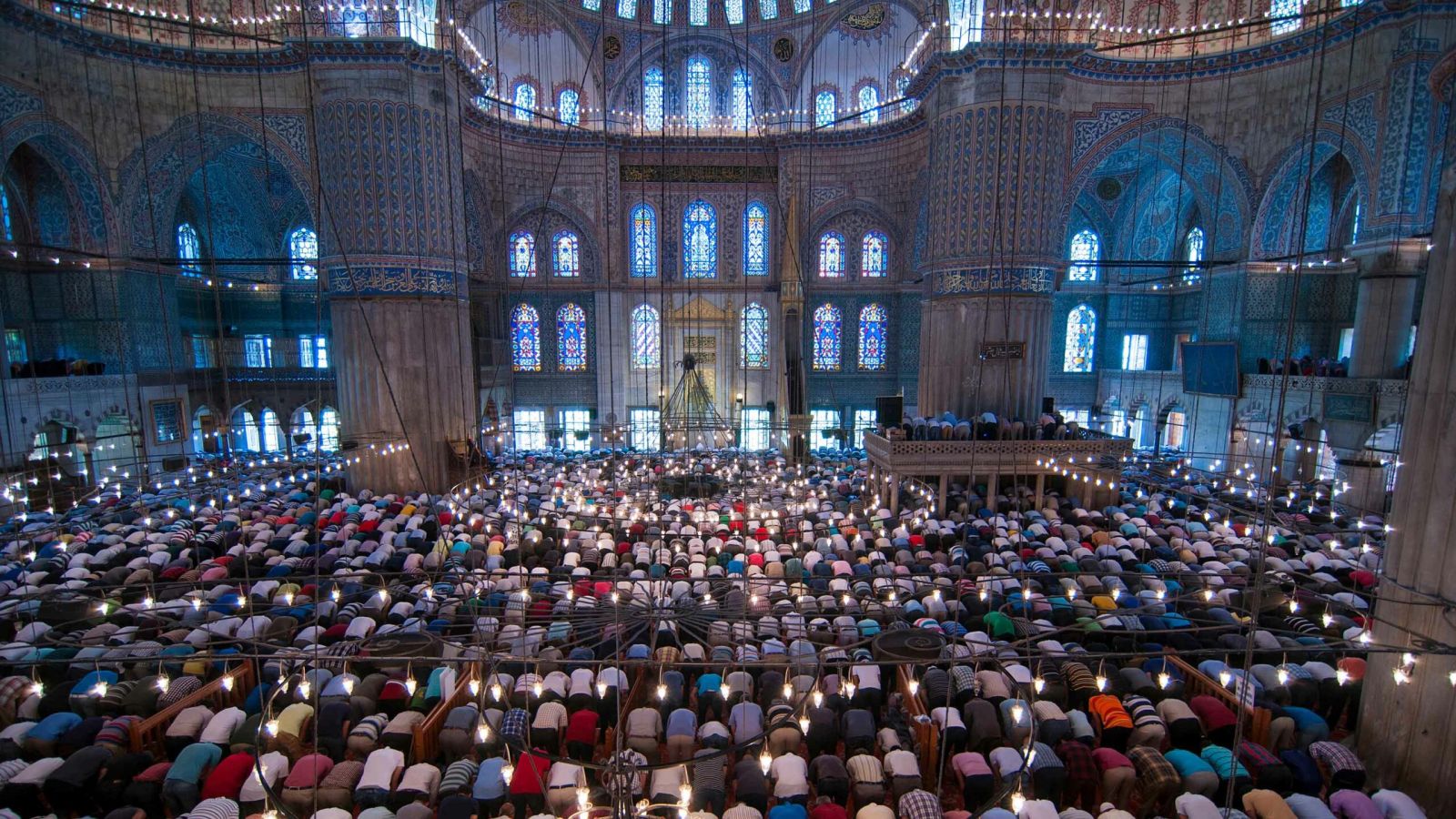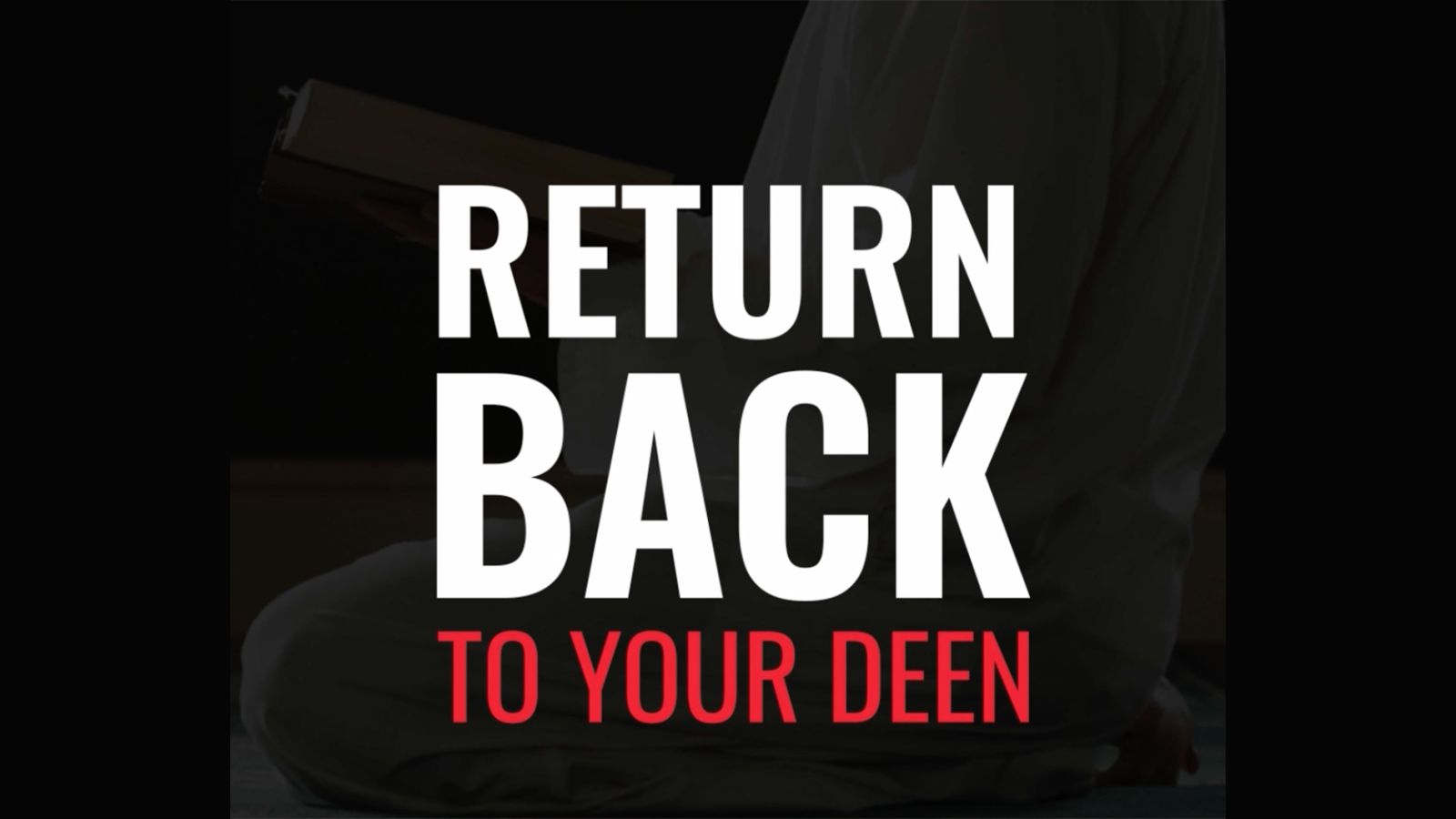The Responsibility of Determining the Direction of the Qiblah: For the Resident and the Traveller
Imām Muḥammad ibn Ṣāliḥ al-ʿUthaymīn


The Stance of the Ḥanbalī Madh`hab Concerning Determining the Qiblah
It is the opinion of the Ḥanbalī madh`hab that if one prays without expending scholarly strife to determine the direction of the qiblah or imitating the opinion of another, should he find someone with such knowledge, then he must repeat his prayer. As for our saying “without expending scholarly strife to determine the direction of the qiblah” that is provided he is able to put forward such strife in its determination. As for “or imitating the opinion of another should he find someone with such knowledge”, this applies to one who lacks the ability to put forward scholarly strife in its determination. In both cases, if a person prays he must repeat his ṣalāh afterwards [according to the Ḥanbalī madh`hab]. This is because he has not fulfilled that which is obligatory upon him. Thus, he is guilty of a form of carelessness and would be required to repeat his ṣalāh.
An example of this would be if a man is able to expend scholarly strife to determine the direction of the qiblah by using the poles or the positions of the sun or moon, but prays in a direction that was not determined by any of these methods at his disposal. This man would have to repeat his ṣalāh.
The Issue of Coincidentally Praying in the Correct Qiblah Direction According to the Hanbalī Madh`hab
The apparent opinion of the Ḥanbalī madh`hab is that such a person would have to repeat his ṣalāh even if he prayed in the correct direction coincidentally. This is because he chose not to expend scholarly strife in its investigation which was obligatory upon him. As for him praying in the correct direction, it only occurred by coincidence, not from him intentionally, purposefully facing that particular direction, as he chose not to expend scholarly strife in its determination.
Similarly, if a person lacks the ability to put forward scholarly strife in its determination, it is obligatory upon him to follow the opinion of another (who has). If he chooses not to, and prays without asking anyone around him, then he should also repeat his ṣalāh even if he coincidentally prays in the correct direction. This is because he has abandoned that which was obligatory upon him. It was obligatory upon him to determine that a specific direction was indeed the qiblah—either by his own determination provided he possesses knowledge to do so, or by imitating the opinion of another if he is not able to determine it himself.
This latter circumstance happens quite frequently. For example, someone stays with an acquaintance as a guest. He stands to pray without asking the host regarding the direction of the qiblah. So he prays while not being from among the people who possess the knowledge required to determine the direction independently by means of evidence. Here, he must repeat his ṣalāh even if he prays in the correct direction by coincidence. As he did not put forward scholarly strife in its determination, nor did he imitate the opinion of another. It was obligatory on such a guest to ask the host who has such knowledge before commencing his ṣalāh.
The Correct Stance When Determining the Qiblah Whether a Resident or Traveller
While other scholars say: If such a person prays in the correct direction coincidentally, he is rewarded for his ṣalāh [without having to repeat]. This is because he would not have prayed except towards a direction which he finds himself leaning towards. This inclination towards a particular direction may be interpreted as a form of near certainty which is sufficient when performing acts of worship. The evidence of this is his (صلى الله عليه وسلم) saying: “Let him investigate to find the truth, then act in accordance with it.”1 Also, if he ended up praying in the correct direction anyways, why would we obligate him to repeat his ṣalāh? This opinion is more correct. If he prays in the wrong direction, then he must repeat his ṣalāh as he has not fulfilled his obligation of either determining the direction himself or asking another.
[Q]: May one determine the direction of the qiblah himself even as a resident?
[A]: The opinion of the Ḥanbalī madh`hab is that the resident is not responsible for putting forward his own scholarly strife to determine the qiblah direction. Although, this is undoubtedly a weak opinion. The correct opinion is that both the traveller and the resident are amenable to putting forward their own scholarly strife in the determination of the qiblah direction. For a resident may ascend to the roof of his lodgings in the night and determine the direction of the qiblah using the poles. Or, during the day, he may determine sunrise occurring from the east and sunset in the west. These indications are present for a person who is a resident, just as they are available to the traveller.
As for their position that the resident need not strive to determine the qiblah direction, they believe it may be determined by the direction that the people of that city face, and by their miḥrābs (the indicated place in some masājid to which the imām faces when leading the congregational prayer)2. We answer this saying: If a person is among those who possess the required knowledge to determine the direction for himself, then he should not be prevented from doing so regardless of whether he is a resident or a traveller.
The correct opinion is that if he determines the direction himself as a resident, then his ṣalāh is correct. If he prays in the correct direction, then his matter is plainly evident (i.e this is acceptable). If he prays in the wrong direction, then he has still put forward scholarly strife in its determination but was mistaken and is, therefore, deserving of one reward. For the one who puts forward his own scholarly strife and attempts to determine its direction, he does not have to repeat his ṣalāh regardless of whether he was correct or otherwise. This is because he has fulfilled his obligation and, as such, has fulfilled the order of Allāh to the very best of his ability. Therefore, he does not have to pray twice as Allāh has not obligated upon any of His servants the performance of a single act of worship twice provided they perform it in the way that was commanded.
[Q]: What if a guest who does not possess the knowledge required to determine the direction himself acts in accordance with the direction indicated by his host, but then it is made clear to him that the direction indicated was incorrect?
[A]: According to the (Hanbalī) madh`hab, he must repeat his ṣalāh. This is because the opinion that he adopts must be from a person who is both trustworthy and certain of the direction. The correct opinion, however, is that he does not have to repeat his ṣalāh. This is because this person has based his actions on the information provided by a trustworthy person. In doing so, he has fulfilled his obligation. Anyone who fulfils his obligation should not be tasked with repeating his act of worship. This is similar to a person who seeks an edict from a scholar, after which it is clarified that the provided ruling was wrong [i.e., in that this person is not sinful for acting in accordance with the provided ruling].
In summary:
- Whoever prays in a qiblah direction he determines by his own scholarly strife, his ṣalāh is considered correct regardless of whether the direction he ends up praying in is correct or incorrect. Also, this is regardless of whether he is a resident or a traveller.
- If a person prays without attempting to determine the qiblah direction himself while possessing the knowledge to do so, or acting in accordance with the opinion of another, if he does not possess such knowledge, then if the direction he ends up praying towards is incorrect he must repeat his ṣalāh. If he coincidentally prays in the correct direction, he does not have to repeat his ṣalāh according to the more correct opinion.
Also, if he is not able to determine the direction himself and cannot find anyone to ask regarding the direction, then he does not have to repeat his ṣalāh [regardless of whether he prays in the correct or incorrect direction].
Endnotes:
[1] Authentic: narrated by al-Bukhārī: 401 and Muslim: 572.
[2] Translator note: There is a difference of opinion regarding the niche (miḥrāb) that has been built in the masājid. Shaykh Ibn ʿUthaymīn said: “It has been said that this niche is disliked as evidenced by narrations from the companions (رضي الله عنهم). Also, because if the imām prays within this niche, he may be partially shielded from view such that those being led are unable to see him. This is problematic, for example, if he was to make a mistake in standing, sitting, or performing rukūʿ and sujūd. For this reason, it has been disliked. However, if there is a need for example if the congregation is quite large and the imām steps forward to pray within the niche, then there is nothing wrong with this. Thus, taking a miḥrāb should not be considered disliked. Some scholars even considered it recommended as it acts as an indication of the qiblah direction and the place of the imām.” See Al-Sharḥ al-Ṣawtī Li-Zād al-Mustaqniʿ 1:2058. The same opinion is also expressed by Shaykh Bin Bāz in Fatāwá Nūr ʿalá al-Darb 11:357. While Shaykh al-Albānī has taken the stance that it is an innovation as in Jāmiʿ Turāth al-ʿAllāmah al-Albānī 8:220. And Allāh knows best.
Source: Al-Sharḥ al-Mumtiʿ 2:284-287
Translated by: Riyāḍ al-Kanadī

















